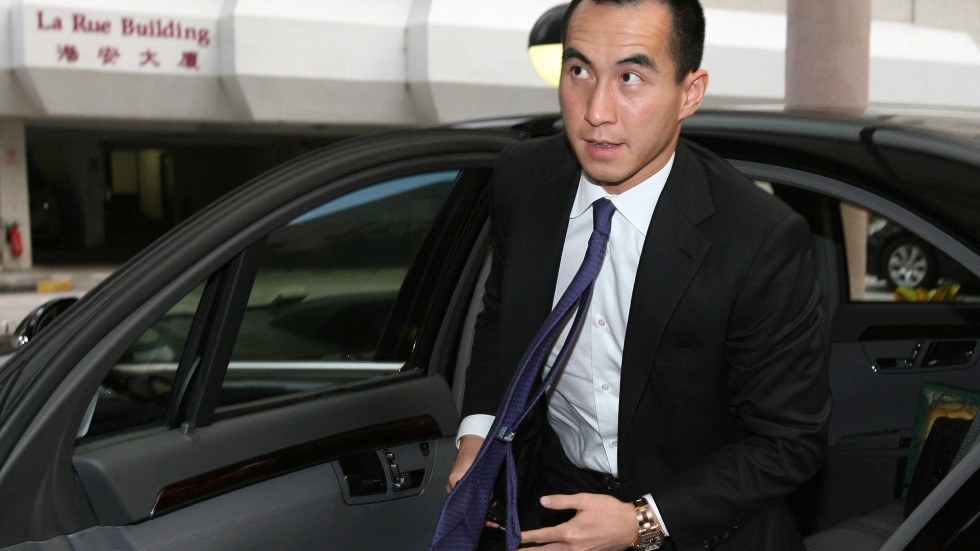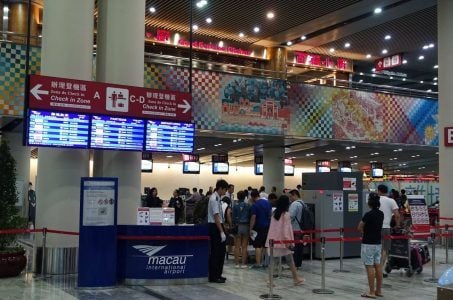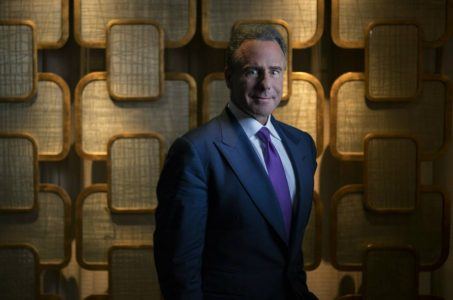Melco Resorts Billionaire Lawrence Ho Divesting Shares in Russia Casino Tigre de Cristal
Posted on: December 18, 2017, 08:50h.
Last updated on: December 18, 2017, 08:53h.
Hong Kong billionaire Lawrence Ho is selling his interest in the Tigre de Cristal casino resort in Russia’s Far East.

In an announcement filed with the Hong Kong Stock Exchange, Summit Ascent, the corporate entity that owns the Vladivostok property, said Ho, its largest shareholder, was unloading his stake. Through Ho’s individual Summit shares and his Quick Glitter Ltd, the combined selloff totals 258.6 million shares, or 17.37 percent of Summit Ascent.
The divestment is being completed at HK $1.05 ($0.13) per share, for a total transaction of $33.6 million. Once completed, Ho will no longer have any interest in Tigre de Cristal.
He’s the son of Macau gaming tycoon Stanley Ho, who controlled a monopoly on casinos in the enclave for decades. Along with Melco, Stanley’s SJM Holdings is one of six licensed casino operators in China’s special administrative region.
Melco Resorts owns and operates Studio City, City of Dreams, and Altira in Macau, as well as City of Dreams in Manila.
Far East’s Financial Difficulties
Lawrence Ho selling his remaining holdings in Summit Ascent comes as little surprise. It was just three months ago that the billionaire unloaded $21.3 million worth of shares in the company, and his wife Sharen divested $20 million of Summit stock.
In 2009, Russia President Vladimir Putin banned gambling across the world’s largest country, with the exception of four specially designated zones. The Primorsky Krai was once such region, but the casinos were mandated to be built in a remote area some 30 miles north of downtown Vladivostok.
Enticed by Russia’s low taxes on gambling, Ho the Younger ended up investing about $75 million in Tigre de Cristal. It was supposed to be one of at least eight casinos, but today, remains the only resort on what was originally envisioned to be Russia’s version of Macau or the Las Vegas Strip.
While its monopoly keeps its casino floor and 300 hotel rooms occupied on the weekends, the remote area simply doesn’t have the foot traffic to support the venue on weekdays. Summit Ascent lost $700,000 through the first six months of 2017.
Ongoing Concerns
There’s a host of reasons pushing the gaming entrepreneur and investor to get his money out of Russia right now.
The primary concern is the swelling flat-rate gaming fee operators pay annually. Russia’s Ministry of Finance warned casinos this fall that they should expect the flat-rate tax to double in 2018, and that the number could swell by a factor of 10 times by 2020.
The tax currently charges an annual fee per table game (250,000 rubles/$4,260) and slot machine ($257). If that rate indeed increases 10 times, Summit will be forced to pay the government $42,600 per table, or $2.85 million each year for its 67 table games.
Another issue preventing growth at Tigre is illegal gambling houses that are located nearer downtown Vladivostok. The largest Russian port on the Pacific Ocean, and the easternmost stop on the Trans-Siberian Railway, gamblers can access rogue table games and slot machines without making the nearly hour-long drive to Tigre.
Related News Articles
Most Popular
LOST VEGAS: The Foster Brooks Robot at MGM Grand
Bally’s Sets Date for Tropicana Las Vegas Implosion & Party
Most Commented
-
VEGAS MYTHS RE-BUSTED: You Don’t Have to Pay Resort Fees
— August 2, 2024 — 16 Comments -
VEGAS MYTHS RE-BUSTED: Elvis Was a Straight-Up Racist
— August 9, 2024 — 11 Comments -
ANTI-SOCIAL BEHAVIOR: Vegas Casino Buffet Stunt in Poor Taste Goes Viral
— August 16, 2024 — 7 Comments -
VEGAS MYTHS RE-BUSTED: The Strip Tried Appealing to Families and Failed
— August 23, 2024 — 7 Comments















No comments yet